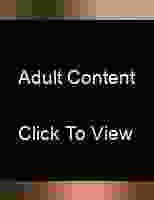Can A Woman Breastfeed After Breast Reduction?
Breast reduction surgery does decrease the ability to breast feed post operatively. That does not mean that it is not possible. A reduction procedure will remove a substantial amount of breast tissue and move the nipple/areolar complex to a more desirable location.
After a reduction procedure, you naturally have less breast tissue, which translates into less breast milk for your baby. The movement of the nipple/areolar complex also decreases the ability to successfully breast feed. Keep in mind that many women are not capable of breast feeding even without any surgical procedure.
So, the short answer is: breast reduction does reduce your ability to breast feed, but with newer techniques it may still be similar to your ability to breast feed before surgery.

Breastfeeding After Breast Reduction Surgery
After a breast reduction your chances are slightly decreased but not by much.
Now if you tell that you have breast fed in the past and you are thinking about having a breast reduction, then I would say that the chances that you will be able to breast feed is high.
It is difficult to predict if a patient can breast feed after a breast reduction.
I always tell my patients that some larger breasted women can not breast feed one child, whereas a small breasted woman maybe able to produce milk for more than one child.
Certainly some of the breast tissue is removed during a reduction, and this may limit the ability to breast feed. (Steven Wallach, MD, New York Plastic Surgeon)

Can You Breastfeed After A Breast Reduction
if your symptoms warrant it, you should not be afraid to proceed.
You will typically be able to breast feed after reduction
Most breast reduction methods will leave the ducts intact and connected to the nipple. There is much less breast tissue, but enough to provide breast milk. In spite of conservative surgical techniques and intact duct anatomy, some patients are unable to breast-feed following reduction surgery, so your surgeon cannot assure you of breast-feeding.
Your lifestyle and comfort issues should be greatly improved by breast reduction. (Sutton Graham II, MD, Greenville Plastic Surgeon)

Most Women Can Produce Some Amount Of Milk
Breast reduction does not affect breast feeding.
This is very good news, and frankly a little surprising. A recent large study from Puerto Rico showed that breast reduction does not interfere with breast feeding. 30% of women with very large breasts are not able to breast feed, but this is true regardless of whether they have breast reduction or not.
70% of women who had breast reduction were able to breast feed and 70% of women with very large breasts who did NOT have breast reduction were able to breast feed. Surgery made no difference. (George J. Beraka, MD (retired), Manhattan Plastic Surgeon)
You should be able to breast feed, but you’ll most likely need to supplement with formula. Currently, about 50% of women who have a breast reduction can breastfeed without supplementation.

Successful Breastfeeding After Breast Reduction
Post-reduction breast-feeding
Depending on the technique, reduction mammaplasty should not appreciably affect the ability to breast-feed. Even when the ducts are cut, the ability to breast-feed is retained in the majority of patients. Of course, there are patients who are unable to breast-feed adequately even without a reduction due to many factors.
Modern breast reduction techniques can maintain the anatomical and functional integrity of the gland-nipple unit so that the ducts and their course to the nipple are undisturbed. So, while the possibility of being able to breast-feed is high and relatively unchanged, one cannot guarantee that you will indeed be able to. (Robin T.W. Yuan, MD, Beverly Hills Plastic Surgeon)
Breast reduction will most certainly impact future breast feeding as the bulk of the glandular and ductal tissue is removed to reduce the volume and weight of the breast. Most often the breast tissue right under the nipple is preserved to help maintain breast shape and nipple sensation.
Even after reduction when you become pregnant one of the first signs will be stiffness and tenderness in the breast. After you deliver the breast will become engorged and you will produce breast milk. There is no reason to not to try breast feeding after reduction.
You may enjoy the closeness and bond of breast feeding. Most will have to supplement breast feeding to ensure the nutritional support and need, and you may be able to judge the volume of breast milk available after reduction by pumping, and fill the nutritional gap if any.

Is It Possible To Breastfeed After Breast Or Nipple Surgery
If you ‘need’ a reduction you should have one, breast feed if you can, and place your hopes in healthy happy children. (Peter E. Johnson, MD, Chicago Plastic Surgeon)
Traditional thinking is that breast feeding after such a procedure is not a good idea since there is a lot of internal damage to the milk apparatus.
The human body can be an amazing thing and there are numerous reports of women who have been able to breast feed after this surgery. It wouldn’t be a good idea to count on it and you’ll have to decide which is more important. (Donald W. Kress, MD, FACS, Frederick Plastic Surgeon)Breastfeeding usually possible after reduction
Breastfeeding has a number of benefits. Not every woman can successfully breast feed whether or not they have had surgery.
However, using the most common techniques for breast reduction, most of the studies confirm that the majority of women can successfully breastfeed. One thing that is more certain is that you will feel a lot better, given your descriptuion of the symptoms you are experiencing. (Richard Baxter, MD, Seattle Plastic Surgeon)
Breast feeding, lactation, or nursing after breast reduction
This depends upon the technique and the treatment of the nipple and areolar complex. If you want a yes or no answer, then one must respond that you may not be able to breast feed.However, if you are undergoing a modest reduction and the integrity of the breast ducts and the sensation remain intact, then nursing may be possible. (Otto Joseph Placik, MD, Chicago Plastic Surgeon)
During breast reduction surgery, when the nipple is repositioned to a higher position, some milk ducts may be cut. This means that milk production following pregnancy could be reduced. If this were the case, breastfeeding might still be possible, but it may be necessary for you to supplement with formula.
However, not all women are naturally able to breastfeed, whether or not they have cosmetic breast surgery. (Ted Eisenberg, DO, FACOS, Philadelphia Plastic Surgeon)


